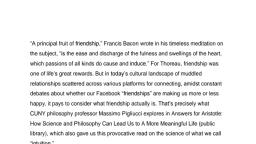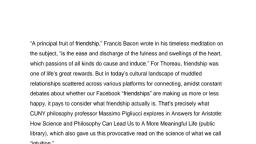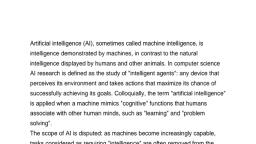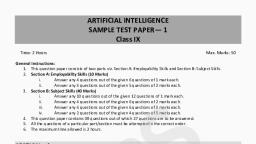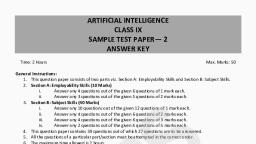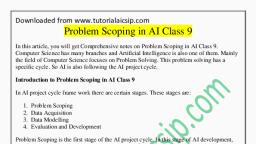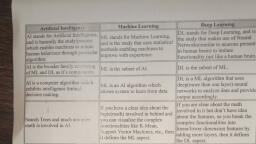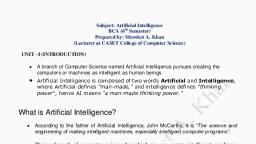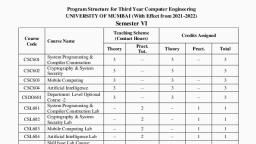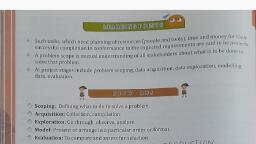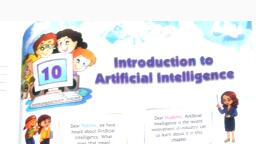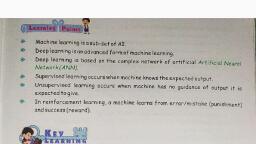Page 1 :
Artificial intelligence (Al), sometimes called machine intelligence, is, intelligence demonstrated by machines, in contrast to the natural, intelligence displayed by humans and other animals. In computer science, Al research is defined as the study of "intelligent agents": any device that, perceives its environment and takes actions that maximize its chance of, successfully achieving its goals. Colloquially, the term "artificial intelligence", is applied when a machine mimics "cognitive" functions that humans, associate with other human minds, such as “learning” and "problem, solving"., , The scope of Al is disputed: as machines become increasingly capable,, tasks considered as requiring "intelligence" are often removed from the, definition, a phenomenon known as the Al effect, leading to the quip, “Al is, whatever hasn't been done yet." For instance, optical character recognition, is frequently excluded from “artificial intelligence", having become a routine, technology. Capabilities generally classified as Al as of 2017 include, successfully understanding human speech, competing at the highest level, in strategic game systems (such as chess and Go), autonomous cars,, intelligent routing in content delivery network and military simulations., Artificial intelligence was founded as an academic discipline in 1956, and in, the years since has experienced several waves of optimism, followed by, disappointment and the loss of funding (known as an “Al winter"), followed, by new approaches, success and renewed funding. For most of its history,, Al research has been divided into subfields that often fail to communicate, with each other. These sub-fields are based on technical considerations,, such as particular goals (e.g. "robotics" or "machine learning”), the use of, particular tools ("logic" or artificial neural networks), or deep philosophical, differences. Subfields have also been based on social factors (particular, institutions or the work of particular researchers).
Page 2 :
The traditional problems (or goals) of Al research include reasoning,, knowledge representation, planning, learning, natural language processing,, perception and the ability to move and manipulate objects. General, intelligence is among the field's long-term goals. Approaches include, statistical methods, computational intelligence, and traditional symbolic Al., Many tools are used in Al, including versions of search and mathematical, optimization, artificial neural networks, and methods based on statistics,, probability and economics. The Al field draws upon computer science,, mathematics, psychology, linguistics, philosophy and many others., , Q1.What is the Al winter?, 1. Loss of funding for Al projects, 2. Non-functioning Al systems, 3. Absence of research labs, 4. None of the above, , Q2.Are sub-fields based only on social factors?, 1. No, 2. Yes, 3. They are based on machine learning, 4. None of the above, , Q3. Leaning and problem solving by machines is a colloquial way of, understanding artificial intelligence?, , 1. Yes, , 2. No, , 3. Artificial intelligence means acquiring knowledge through books, , 4. It cannot be defined colloquially
Page 3 :
Q4.Are autonomous cars an example of Al?, 1. Yes, 2. No, 3. As of 2017, they are, 4. None of the above, , Q5.Does Al only draw on technology and mathematics?, 1. Yes, 2. No, 3. It also draws upon psychology, 4. It only draws upon linguistics



